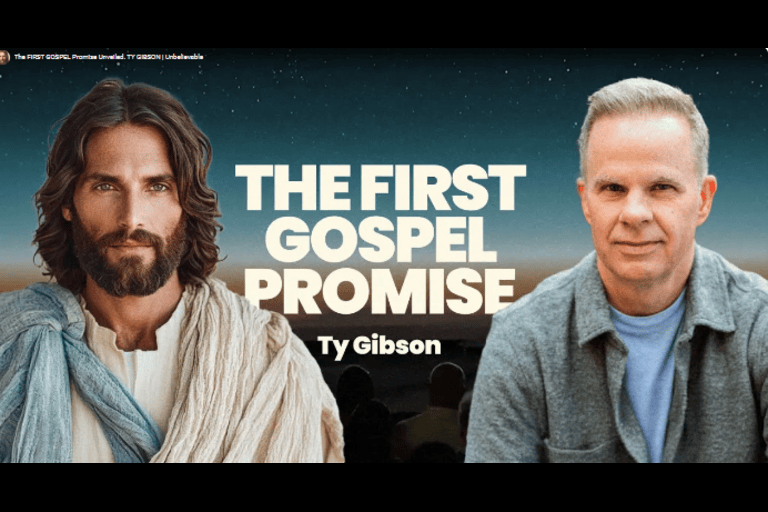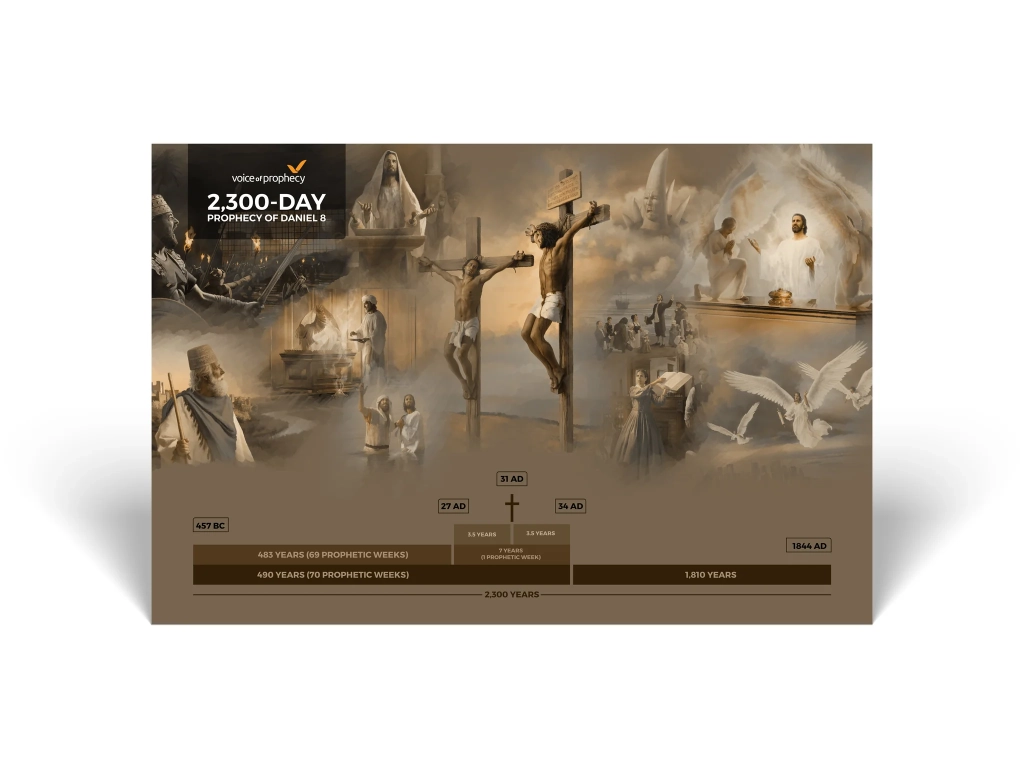The Question That Touches Every Heart
Few questions stir the human heart as deeply as “What happens after death?” From the earliest civilizations to modern times, people have wondered whether life continues beyond the grave, whether heaven and hell are real, or whether death is simply the end.
For the Christian, the Bible provides answers that are both sobering and filled with hope. Jesus Christ Himself declared, “I am the resurrection and the life. He who believes in Me, though he may die, he shall live” (John 11:25). Yet, not all who claim the name of Christ interpret death and life after death in the same way.
In this article, we will explore the subject of death from a strictly biblical worldview, while contrasting four perspectives: the Adventist, Catholic, Baptist, and secular understandings. We will also consider how the 2300-day prophecy of Daniel helps us situate death and resurrection within God’s great plan, leading up to the Second Coming of Jesus Christ.
Our goal is not to attack, but to lovingly shed light, so that readers may find peace in the Savior, and assurance in the promise of eternal life.
Background: Why Death and Prophecy Matter Together
Before we compare views, it is important to understand why death and prophecy are closely related. The Bible teaches that history is moving toward a climax: the Second Coming of Jesus Christ. At that moment, the fate of every human being—whether dead or alive—will be revealed.
- Those who have placed their faith in Christ will be raised to life eternal or transformed if still alive (1 Thessalonians 4:16–17).
- Those who reject Him will face judgment, ultimately leading to the second death in hell (Revelation 20:14).
The 2300-day prophecy of Daniel 8:14 anchors this timeline. Interpreted historically, those days symbolize years, bringing us to 1844 and the beginning of Christ’s final work of judgment in the heavenly sanctuary. This prophecy reminds us that we are living in the last phase of earth’s history, just before the Second Coming.
Therefore, the question of what happens after death is not merely philosophical. It is deeply connected to salvation, prophecy, and the preparation of the soul for eternity.
The Biblical View of Death: Sleep Until the Resurrection
Scripture frequently describes death as sleep. Jesus Himself, when speaking of Lazarus, said, “Our friend Lazarus sleeps, but I go that I may wake him up” (John 11:11). Paul echoes this in 1 Thessalonians 4:13, reassuring believers that those who “sleep in Jesus” will rise at His coming.
Key biblical truths about death include:
- Death is not the end – it is a temporary state, a sleep until resurrection (Ecclesiastes 9:5; Psalm 146:4).
- The dead are unconscious – they do not praise, think, or interact until the resurrection (Job 14:10–12).
- The resurrection is our hope – eternal life begins when Christ returns (John 5:28–29).
This foundational teaching is essential to grasp before we contrast different worldviews.
Contrasting Perspectives on Death
- Adventist Teaching
The Seventh-day Adventist view is perhaps the most closely aligned with the biblical “sleep” metaphor.
- Death as Sleep: Adventists teach that the dead remain unconscious until the resurrection at the Second Coming of Jesus Christ.
- Heaven and Hell: No one has yet gone to heaven or hell, except Christ and those specially resurrected (e.g., Moses). Eternal life or eternal death will be assigned after judgment.
- 2300 Days and Judgment: The 2300-day prophecy is central. Adventists believe Christ entered the Most Holy Place in heaven in 1844 to begin the final judgment phase. This judgment includes the examination of the dead, which precedes their resurrection and final reward.
- Hope in the Savior: For Adventists, death is not fearful but a rest until the Savior calls His children to life eternal.
This perspective places strong emphasis on prophecy, Christ’s ongoing heavenly ministry, and the Second Coming as the moment of reward.
- Catholic Teaching
The Catholic Church offers a very different understanding.
- Immediate Afterlife: Catholics believe that at death, the soul separates from the body and immediately goes to heaven, hell, or purgatory, depending on one’s state of grace.
- Heaven: Those in perfect friendship with God enjoy the beatific vision.
- Hell: The unrepentant are eternally separated from God.
- Purgatory: A unique Catholic doctrine where souls are purified before entering heaven.
- Judgment: Catholics hold to both “particular judgment” (immediately after death) and “final judgment” at Christ’s return.
While this provides comfort for many, critics note that it lacks the consistent biblical imagery of death as sleep and undermines the significance of resurrection.
- Baptist Teaching
Baptists vary, but many hold a belief closer to Catholicism than Adventism.
- Conscious Soul: Baptists generally believe that the soul is conscious after death. Believers go immediately to heaven, while the lost go to hell.
- Resurrection: The body will still be raised at Christ’s coming, but the soul is thought to already exist in heaven or hell.
- Judgment: Like Catholics, they believe in an immediate placement after death, though without purgatory.
This perspective blends biblical resurrection teaching with a belief in an immortal soul, though Scripture consistently presents immortality as a gift given at resurrection (1 Corinthians 15:53).
- Secular Perspective
The secular worldview, by contrast, denies divine revelation.
- Death as the End: For many secular thinkers, death is final. Consciousness ceases, and there is no heaven, hell, or resurrection.
- Comfort in Legacy: Hope is found in the memory of one’s life or in contributions to society, rather than eternal life.
- Challenge: This view offers little hope beyond the grave and cannot answer the deep yearning for eternity that God has placed in the human heart (Ecclesiastes 3:11).
This stands in stark contrast to the biblical hope of resurrection and the Second Coming of Jesus Christ.
The 2300 Days: Prophecy and the Hope of Judgment
The 2300-day prophecy of Daniel 8:14 is crucial for understanding where we stand in history.
- Historical Fulfillment: Using the prophetic day-year principle (Ezekiel 4:6; Numbers 14:34), the 2300 days represent 2300 years. This timeline, beginning in 457 BC with the decree to restore Jerusalem (Daniel 9:25), reaches to 1844.
- Significance of 1844: Adventists believe this marks the beginning of the heavenly judgment, as Christ entered the Most Holy Place in heaven’s sanctuary.
- Connection to Death: The judgment phase includes reviewing the lives of those who have died. This means that the question of what happens after death is not just academic—it is part of God’s present work of deciding eternal destinies.
- Assurance in Christ: Believers do not need to fear this judgment, because Jesus is both our Judge and our Advocate (1 John 2:1).
Thus, prophecy ties directly into the hope of resurrection and eternal life.
Practical Tips: Living in Light of Death and Resurrection
How can we live meaningfully in the face of death? Here are practical steps:
- Trust in the Savior – Eternal life is a gift only through Jesus Christ (Romans 6:23).
- Live with Hope – Death is not the end; it is a sleep until Christ awakens us.
- Stay Ready – Since no one knows the day or hour of the Second Coming, live each day in faith and obedience.
- Study Prophecy – The 2300 days remind us that time is short. Immerse yourself in God’s Word.
- Comfort One Another – Paul urges believers to encourage one another with the hope of the resurrection (1 Thessalonians 4:18).
Conclusion: Hope Beyond the Grave
Death touches every family, every culture, and every heart. Yet, through the lens of Scripture, we see that death is not the final word. Whether Adventist, Catholic, Baptist, or secular, every worldview must wrestle with the ultimate question: Is there life after death?
The Bible’s answer is clear: Yes—eternal life is promised through the Savior, Jesus Christ. Death is but a sleep until the trumpet sounds at His Second Coming. The 2300-day prophecy assures us that we are living in the time of judgment, just before that glorious event.
While traditions differ, the invitation of Christ remains the same: “Come to Me, all you who labor and are heavy laden, and I will give you rest” (Matthew 11:28). That rest extends even into death, until He calls us to rise to everlasting life.
So let us live in hope, walk in faith, and fix our eyes on the Savior. For soon, the dead in Christ will rise, and we will be caught up together to meet the Lord in the air—and so we shall always be with the Lord.






